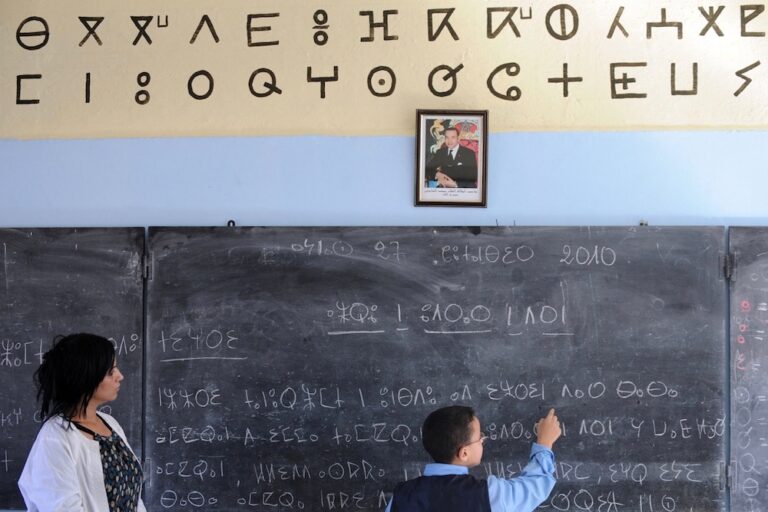(RSF/IFEX) – RSF has condemned the three-month suspension of the Arabic-language weeklies “Al Hayat al Maghribia” (“Moroccan Life”) and “Asharq” (“The East”). The 18 January 2005 order came in an apparent application of an 18-month-old court order, despite the fact the order was later rescinded by a royal pardon. “The Rabat Appeals Court did indeed […]
(RSF/IFEX) – RSF has condemned the three-month suspension of the Arabic-language weeklies “Al Hayat al Maghribia” (“Moroccan Life”) and “Asharq” (“The East”). The 18 January 2005 order came in an apparent application of an 18-month-old court order, despite the fact the order was later rescinded by a royal pardon.
“The Rabat Appeals Court did indeed sentence these two independent newspapers to three months’ suspension in August 2003 for publishing a statement on their front pages by an organisation claiming responsibility for three of the five Casablanca bombings. However, there are no longer any legal grounds for pursuing the case as the ruling was later quashed by a royal pardon. We call on the authorities to clarify the reasons for this suspension or simply allow them to resume publishing at once,” RSF said.
“Al Hayat al Maghribia” editor Mustapha Kechnanni and “Asharq” editor Mohammad Lhourd were summoned to the office of regional intelligence chief Khalid Hamouda, in the northeastern city of Oujda, on 18 January and told the Justice Ministry had ordered their newspapers’ immediate closure. They were given no chance to appeal the decision. Had a new complaint been filed, the law would have allowed them to appeal to the Supreme Court.
Kechnanni and Lhourd asked to see a copy of the Justice Ministry order but their request was refused. They were notified verbally of both the summons and the suspension order. In protest, the two editors refused to sign a statement summarising what had taken place at the meeting.
Afterwards, the authorities immediately ordered the seizure of all copies of the newspapers from newsstands throughout the kingdom, instructed the distribution company Sapress to stop distributing the papers, and told printing companies to stop printing them.


